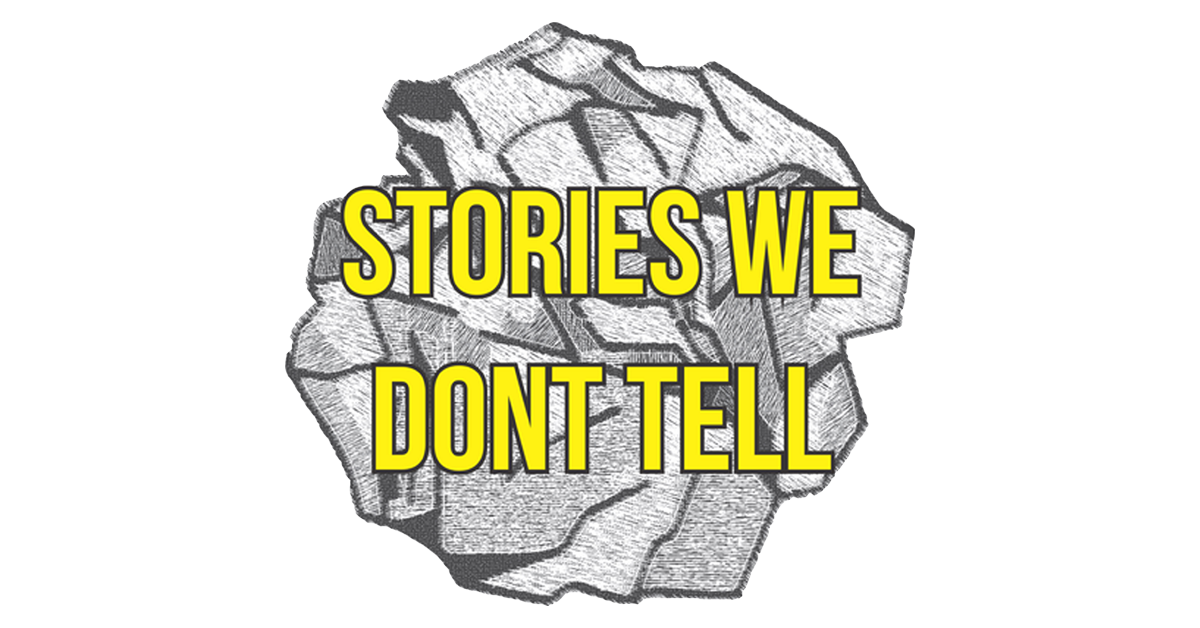This is a transcription of Stories We Don't Tell Podcast Episode 61: Write it all out. Listen to the podcast episode HERE.
Welcome back to the Stories We Don't Tell podcast. My name is Paul Dore and I am Stefan Hostetter. We thought that was a very professional start to this new third season. You know it's almost as if we've got it all figured out. We've got it so figured out, we don't really even have to do it anymore. So we hope that everyone had a wonderful summer and we're going to get right to it.
This is a five part series to open up Season 3 of the podcast and we're calling it 'don't take this advice'. So it's five pieces of advice that you don't have to follow but that if you're feeling stuck these are some things you can do.
These are also just some tricks and tips that we've learned after doing this for years and participating in a lot of workshops and helping guide a lot of people through their stories. These are just things that we either keep coming back to or that just seemed to be helpful.
If you listen to the podcast from previous seasons you might have heard us say some of these things before. However, we thought it might be useful to really dive directly into some of them in bite-sized chunks and create a resource to some extent.
The first one is write it all out. Very simple advice. The idea is that you know you might be working on a story for a long time. You might have a lot of different thoughts about it. Or before you do anything else or at any point during your writing process you might find yourself stuck. And one of the things we advise especially early on in writing a story is to really just write out every single part of the thing you're thinking about because you might see it from a new perspective. It helps in a whole variety of ways but really trying to provide as long a description of each individual detail is very helpful.
What we think is important during the stage is not to even worry about trying to craft the story or trying to shape it in any kind of way. The point of doing this exercise is just to get all of these things out because you'll start finding those new details. You might even find new feelings about what you're trying to say. A lot of stories that people come to share at the event are stories from the past and could be from when you were a kid and you have a fixed way that you've told that story to people over the years. You've done your own internal editing as you've been sharing it in informal ways. Writing it all out is almost like opening up and unpacking the story and revisiting those experiences again.
We also censor ourselves. We avoid writing about parts of a story that we don't want to talk about. The value of digging into the details of the story and actually writing out even those seemingly unimportant parts can help you move past self-censorship and improve the story. We're not saying you have to share everything but writing it out gives you a better understanding of why the story matters to you.
A lot of people that have participated in the event and have heeded this advice come away with a different perspective of how they fit into the story. What it means to them and what they're trying to say. Writing it all out can be uncomfortable sometimes but it's a good discomfort.
To wrap up, writing your story all out helps with seeing the narrative from a new perspective, discovering new details and figuring out where you are in the story.

